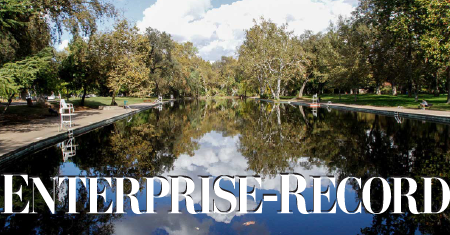As I read official accounts of the collapse of Baltimore’s iconic and important Francis Scott Key Bridge, here’s what I noticed: Most of the victims were immigrants from south of the border — Honduras, Guatemala, Mexico, El Salvador. A construction crew of eight, hired by a company called Brawner Builders, was working in the wee hours of the morning to fix potholes on the bridge when it was struck by a huge container ship.
Two men were rescued, and two bodies have been recovered. The others are missing and presumed dead, according to officials. They were men who worked hard to provide for their families here in the United States and to send money back home to relatives still in their native lands, according to family members and friends.
One victim was Maynor Yassir Suazo Sandoval, a father of two who immigrated from Honduras 18 years ago. In addition to his work for Brawner, he had started a small package delivery company. Another was Miguel Luna, a father of three who immigrated from El Salvador 19 years ago.
They were not plundering and pillaging, murdering or creating mayhem, despite the image of such immigrants that has been made popular on the right. Not only were they supporting their families, but they were also making a vital contribution to our economy. You won’t hear nearly as much about these men as you have heard about Jose Antonio Ibarra, the man charged in the murder of Laken Riley, killed on a jogging trail at the University of Georgia.
Presumably, the bridge crew comprised documented workers since private companies are legally obligated to check immigration status, but it’s not clear how they arrived. Two decades or so ago, it was not uncommon for men such as these to cross without papers and to later be absorbed into the workforce, acquiring documents along the way. They worked hard, revitalizing not only industries but also entire communities.
You won’t hear this from presumptive Republican presidential nominee Donald Trump or his acolytes on Fox News, but many economists believe that the U.S. economy has maintained a steady growth rate (unlike Great Britain) partly because of immigration. According to the nonpartisan Congressional Budget Office, the surge in immigration will bolster the U.S. economy by about $7 trillion over the next decade. Immigrants fill jobs left vacant by a surge of retiring baby boomers and help make up for a declining birth rate.
If you are worried about the soaring cost of housing, which is linked to a lack of supply, you ought to be happy to welcome immigrants, many of whom take jobs in the construction industry. According to government statistics, Latinos account for about one-third of construction workers. It is worth noting that construction is among the more hazardous occupations — becoming more so as climate change makes summers hotter.
As my hair grays and my joints creak, I think more about needing assistance as I age. There is a shortage of caregivers because such jobs don’t pay well. Who will assist me to get in and out of the shower or to prepare my meals in later years if I need that? If we cannot allow more immigrants, legal and otherwise, into the country, a lot of the elderly will be out of luck.
Still, the anti-immigration die-hards can’t seem to wrap their heads around that reality. They thrill, instead, to Trump’s racist tropes about immigrants “poisoning the blood of our country,” which echoes Adolf Hitler. They indulge in fabrications about immigrants who plot terrorism or spread disease. They support militias who flock to the Texas border, guns in hand, to “protect” the country from “invaders.”
Since the bridge collapse, some right-wingers have fallen further down their racist rabbit hole. Not only have they been unable to acknowledge the benefits of immigration, but they have also gone after native-born people of color, insisting that the Baltimore accident was somehow the fault of DEI (diversity, equity and inclusion) initiatives. There is one small benefit to this: They can’t plausibly deny that bigotry fuels their beliefs.
Cynthia Tucker won the Pulitzer Prize for commentary in 2007. She can be reached at cynthia@cynthiatucker.com.
